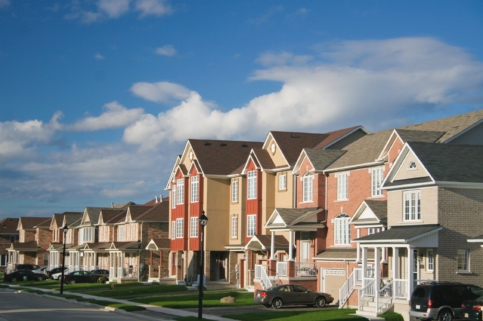5 Things to Ask About Homeowners Associations BEFORE You Buy
According to the Community Associations Institute, approximately 63 million Americans are a part of a Homeowners Association (HOA), a number that is expected to rise in the coming years. While these HOAs govern nearly 25 million families, many first time homebuyers have never lived in an area controlled by the rules of a homeowners association, often called Covenants, Conditions and Restrictions (CC&Rs). While there are some things that won’t take most residents by surprise or drastically affect your daily life, like a no-glass-by-the-pool rule, there are other things that you don’t want to find out about after you’ve signed the papers for your new home, like a $500/month HOA fee. If you find out that the home you’re looking at is governed by an HOA, here are some things to dig a little deeper into.

Money Matters
Before you even began looking for homes, you probably met with a mortgage loan officer. These professionals help you figure out what you can afford based on your current income and debts and can even help you factor in what your total monthly costs will be when considering tax and insurance payments. If you live in an area where HOAs are common, they will also help you factor that into the calculations, but if these are not common in your area, they can easily be forgotten. These dues average $200-$400 per month, which can put the squeeze on your budget if not planned for. Make sure you find out right away if the home you’re looking at will have this extra expense and adjust your search accordingly.
Ask to see the financials of the HOA before deciding on a property. You should take a look at the last few years (to see what’s been done and how the fund has been managed) as well as the current and any upcoming approved budgets as well as reserves, if possible. This information is important to know because anything that the association is in charge of maintaining/repairing that isn’t in the budget, but is in noticeable disrepair, will either a) not be fixed/maintained/replaced or b) will only be fixed/maintained/replaced through a special assessment.
On this same note, ask if there have been any special assessments in the past (and what for) as well as if there are any planned for the future. A special assessment is essentially a charge for an upgrade that is split by everyone in the HOA be it a community workout facility, sidewalks, or something else. Rather than spread these payments over a period of time by working them into the HOA budget, these are lump sum payments due by every homeowner and can add thousands of dollars (unexpectedly!) to your total cost. Additionally, you’ll want to ask what the history of dues increases are and if the association is planning an increase in the foreseeable future.

You (Sometimes) Get What You Give
While the prospect of paying a fee per month on top of your house payment might sound like an awful arrangement, it can actually still be a financially beneficial situation for you. HOA dues are designed to care for amenities like sidewalks, pools, and other shared spaces, but sometimes they cover services like electricity, internet, or even certain types of insurance as well. Each HOA is different and is ruled by a different set of CC&Rs so it’s important to clearly understand what your dues will go towards and how that can shape your budget.

Know the Rules
One of the best parts of owning your home can be the freedom to decorate, renovate, and personalize as you wish, but if you’re part of an HOA, you might be giving some of that up. Many Homeowner Associations have rules dictating the physical appearance of your home from what style of windows you have to what kind of landscaping you need to where you can store your garbage bins. If you’re not willing or wanting to abide by these rules, then you are better off looking at another property. These restrictions can cover anything from the color scheme of your home to the length of your grass to whether you can keep pets, so it’s very important you know, understand, and agree with their rules.

Guess Who’s Coming to Dinner
You’ll want to also ask about the number of units/homes in your HOA that are owner-occupied, renter-occupied, and unoccupied. Unoccupied properties mean that the HOA budget will most likely underfunded and therefore planned renovations and improvements can be pushed back or will need a special assessment to be funded. Renter-occupied properties are not inherently bad, but may lack the upkeep that an owner-occupant would and some lenders may have require that fewer than 25% of units are renter-occupied. In short, if you’re going to be a part of a Homeowners Association, you should know who you’ll be living and working with.
These are just a few of the considerations when looking at a home located within HOA-governed area. Working with a real estate agent who you trust and who knows the area well will be your best way to avoid any costly and disappointing surprises.
- 20 Trends from the 1920’s to Watch in 2023 - March 24, 2023
- How much does a real estate agent make? - September 4, 2020
- 5 Things Real Estate Agents Don’t Want You to Know - July 17, 2020




Trackbacks & Pingbacks
[…] the height, material, and possibly even color of your fence. It’s a good practice to check into HOA laws before buying a house, regardless of owning a […]
Leave a Reply
Want to join the discussion?Feel free to contribute!